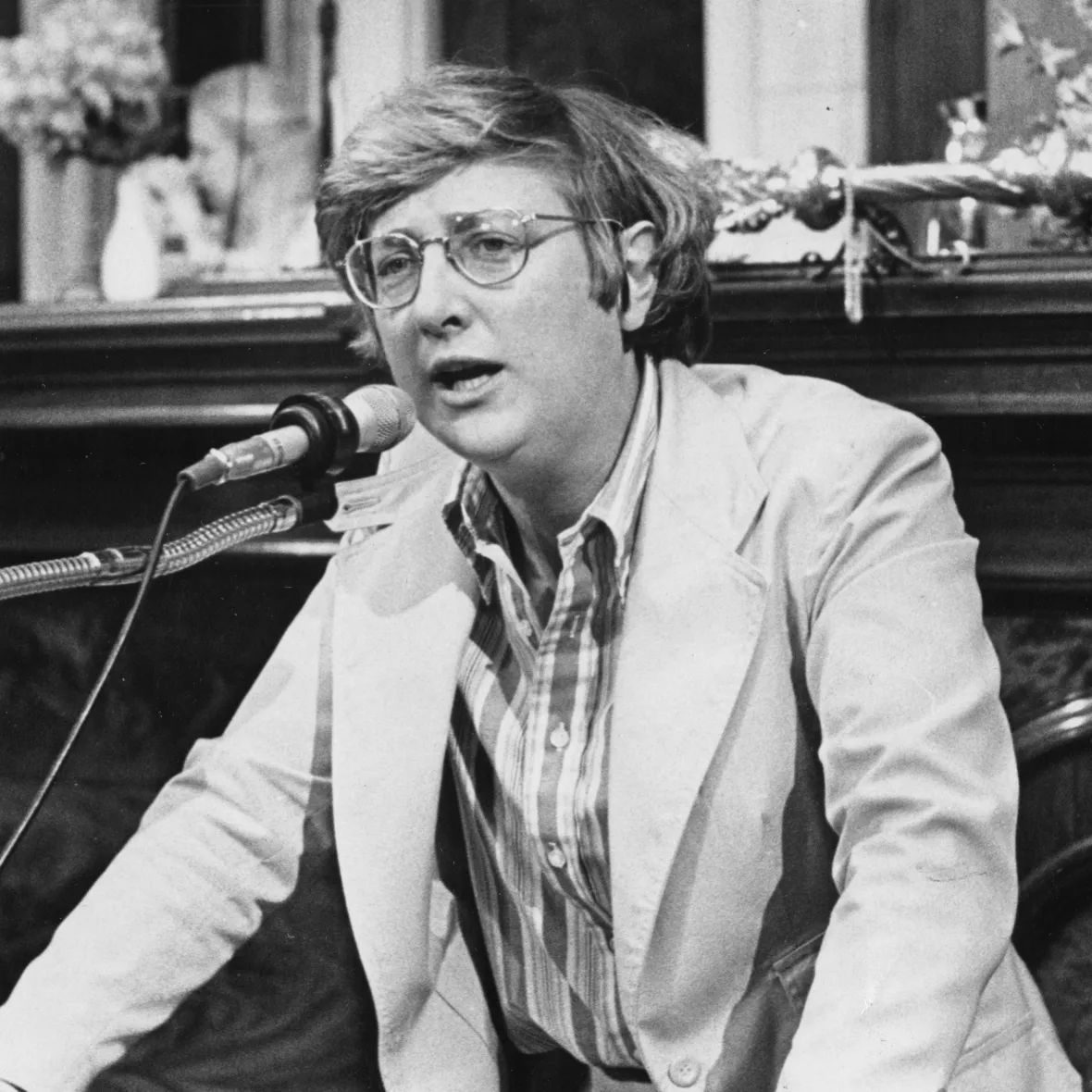 View All Honorees
View All Honorees
Columbia City of Women Honoree
Jean Hoefer Toal
Image courtesy of the State Newspaper Photograph Archive, Richland Library.
On March 7, 1961, Jean Hoefer sat in a packed courtroom to watch attorneys Matthew J. Perry, Jr., Lincoln C. Jenkins, Jr. and Donald Sampson defend eight black demonstrators, including James Edwards, Jr., against a charge of breach of the peace. Five days prior, these eight college and high school students were among 190 individuals, including 187 black students, arrested as they peacefully paraded through the South Carolina State House grounds in groups of 15 to 25 people and sang patriotic and religious hymns. Although only a senior in high school, Hoefer was already part of an interfaith, biracial coalition which placed her “right there shoulder to shoulder with some of the very few white Southern young people who supported civil rights activities.”
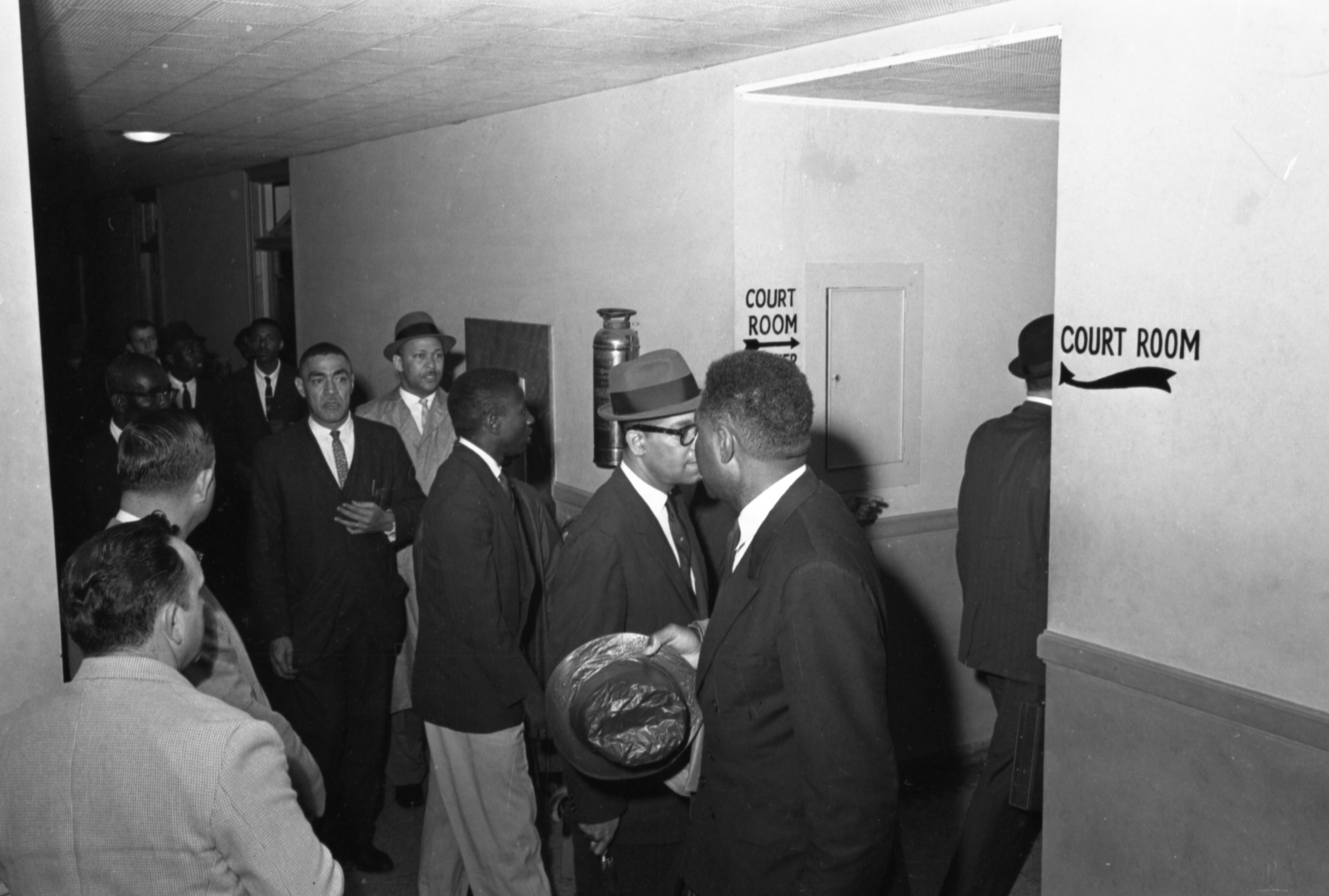
Through more than two dozen objections and cross-examination of Columbia’s city manager, Perry managed to establish that the demonstrators did not curse, threaten, nor block the sidewalks. Instead, the city manager admitted to identifying potential “troublemakers” among the hundreds of bystanders watching the demonstration and authorizing the arrests to “avoid conflict, possible riot…and danger to these students themselves.” Despite this testimony, Magistrate Frank Powell found the eight students guilty and noted “no defense was put up on your behalf.” The statement was accurate—the three defense attorneys did not request a jury trial and presented no witnesses— but Perry’s trial work that day laid the groundwork for the U.S. Supreme Court ruling Edwards v. South Carolina (1963), which affirmed that the state had infringed upon the demonstrators’ right to free speech, free assembly and freedom to petition. The Edwards ruling would serve as precedent for overturning similar convictions throughout the South. For Hoefer, today known as Chief Justice Jean Hoefer Toal, Perry became a hero that day, one that she and a generation of South Carolina attorneys would strive to emulate over the next 50 years.
"My personal conviction, my membership in student organizations, and my firsthand witnessing of the civil rights struggle in Columbia and Atlanta inspired me to become a civil rights activist."
— Jean H. Toal, February 21, 2003
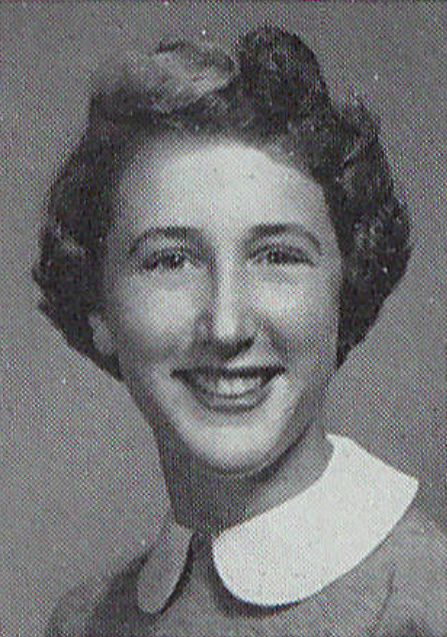
Jean Hoefer was born on August 11, 1943 to Lilla Farrell and Herbert Wellington Hoefer in Columbia, South Carolina. The oldest of five children, she was always known for her toughness and gained respect for her athletic and intellectual prowess at a young age. She came of age during the turbulent 1950s, when many white South Carolinians organized boycotts and joined white Citizens’ Councils in an effort to stop desegregation. As a resident of the affluent Heathwood neighborhood and a student in the all-white Columbia public school system, it would have been easy for Hoefer to conform with prevailing opinions about segregation within her community. Instead, she joined the South Carolina Christian Action Council (SCCAC), an interfaith, biracial group that opposed segregation. Her father also became one of the few white business owners to contract with Perry for his legal services. Hoefer graduated from Dreher High School a few months after the Edwards trial and enrolled in Agnes Scott College in Atlanta. She continued to actively support the civil rights movement, joining the Student Nonviolent Coordinating Committee (SNCC), often called the “foot soldiers” of the movement, and later the Voter Education Project (VEP), where she participated in voter registration drives in South Carolina, Georgia, and Mississippi.
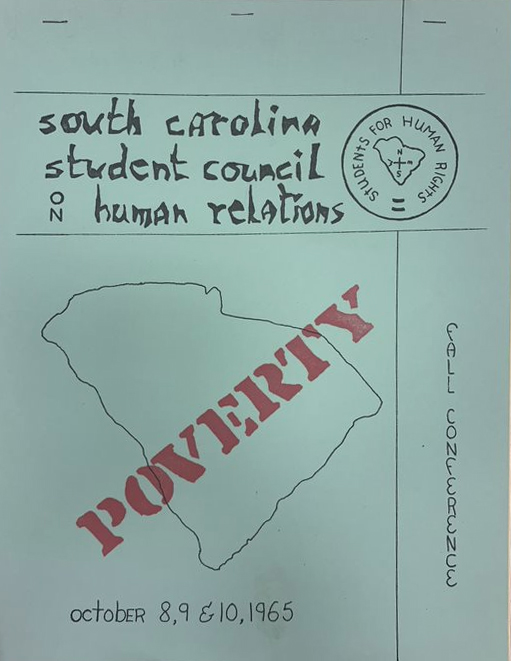
After graduating with a bachelor of arts in philosophy in 1965, Hoefer enrolled at the University of South Carolina School of Law, where she was just one of four women in a class of over two hundred. She remained involved with the civil rights movement through the Student Carolina Student Council on Human Relations (SCSCHR), where she was one of a handful of USC students that attended conferences alongside students from historically black colleges and universities (HBCUs). She also served as the managing editor of the South Carolina Law Review. Her classmate and future husband, William Thomas Toal, served as editor-in-chief. Both were admitted to the bar on October 3, 1968.
Jean Hoefer Toal first joined the Greenville firm of Haynsworth, Perry, Bryant, Marion, and Johnstone, a unique shop with two female partners: Miss James Perry, the state’s first female attorney, and Jean Galloway Bissell, who served as Toal’s mentor. Toal’s decision to engage in trial work came at an opportune time. In 1967, after years of lobbying by the League of Women Voters, the General Assembly ratified a constitutional amendment permitting women to sit on state juries. Toal, then just one of three women trying cases in South Carolina, found herself appealing to juries that were now majority-female.
"Jean’s story serves as an important reminder that being a first is just the beginning."
— Sandra Day O’Connor, 2016
After returning to Columbia and joining the firm Belser, Belser, and Baker, Toal continued to specialize in criminal defense and administrative and employment law as well as civil rights litigation. Her most notable case was Eslinger v. Thomas (1973), in which she assisted American Civil Liberties Union (ACLU) attorney Laughlin McDonald in representing USC law student Victoria Eslinger in a discrimination suit against members of the South Carolina Senate. In 1970, Lovick Oliphant Thomas, in his role as Clerk of the Senate, denied Eslinger’s application to become a Senate page because she was female. In response to Eslinger’s lawsuit, the Senate passed Resolution S.525, which allowed women to serve as “clerical assistants” and “committee attendants” but not as “Senate pages,” and also required that women “furnish a written statement from her parent or guardian assuming responsibility for her transportation, safety and supervision to and from her local residence and the senate and at her local residence.” Toal consulted with Ruth Bader Ginsburg, then a Columbia University law professor and consultant with the Women’s Rights Project at the ACLU, on strategy and briefs, which according to Ginsburg “addressed novel constitutional issues related to the analysis of sexually discriminatory classifications under the Constitution and were part of a nationwide push to achieve full equality for women under the law.” Eslinger would later win on appeal on March 28, 1973.
"Matthew Perry and I ran together the first time I ran. We had the delightful privilege and pleasure of running together; Perry was running for the United States Congress at that time, in 1974, and I was running for the House of Representatives. We had a get-out-the- vote effort that we centered at Carpenters Hall on Gervais Street, above where the big Blue Ribbon Taxi Cab stand and Blue Ribbon office was there, which was the biggest black-owned cab service.
...In fact, during election day that day, Perry and I were on a flatbed truck together with kids from Allen and Benedict with bullhorns and we rode through ward nine, ward eight, ward seven and several of the other heavily African-American wards and the kids would holler, "Get out to the polls for Perry and Toal. Do you need a ride?" We'd send people out, we were knocking on doors, they were, trying to create some enthusiasm and excitement, and of course as soon as we got the word we would then get the cabs down there to pick the people up and take them to the polls, wait on them and take them back."
— Jean H. Toal, February 21, 2003
The following year, 31-year-old Toal joined other feminist candidates recruited to run for public office as part of the National Women’s Political Caucus’ campaign “Win with Women ’74.” She ran against L. Roger Kirk, Chairman of the Richland County Delegation. In the weeks leading up to the election, he declined to debate Toal, but this didn’t stop her from winning the seat on November 5, 1974. She would serve as a member of the South Carolina House of Representatives (D-Richland) from 1975 until 1988. During her tenure, she fought to ratify the Equal Rights Amendment in the General Assembly but was outmaneuvered. She became the first woman to serve on the House Judiciary Committee and later became the first female chair of a standing committee in the South Carolina General Assembly.
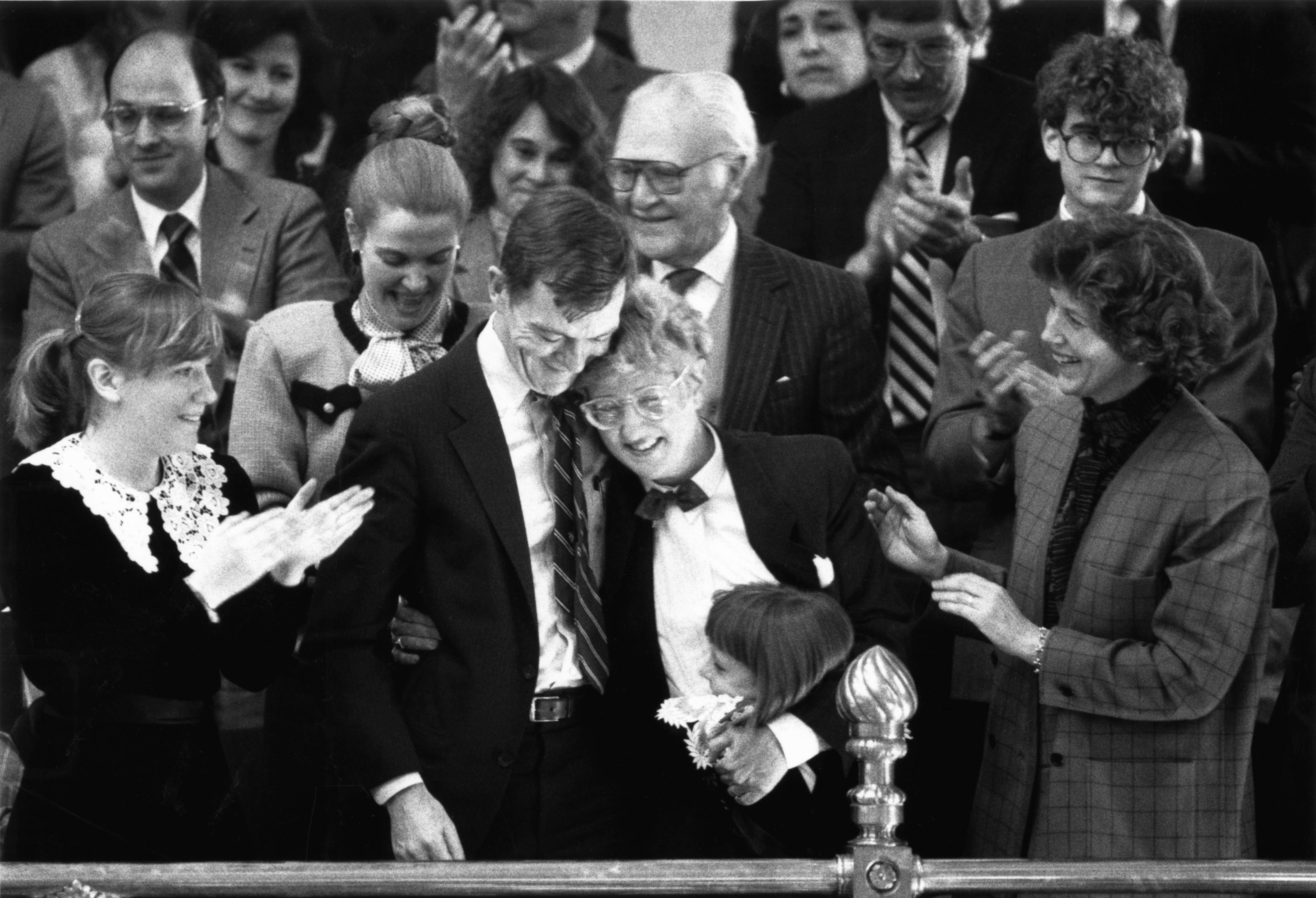
Toal next ran for and was elected Associate Justice of the Supreme Court of South Carolina on January 27, 1988 and was appointed Chief Justice 12 years later, on March 23, 2000. Her swearing in at the South Carolina Supreme Court building was a jubilant gathering, attended by hundreds of people. The ceremony also included her husband and two daughters, Lilla and Jean, a fitting nod to Toal’s devotion to her family.
In 2004, more than 40 years after witnessing Matthew J. Perry’s work in the Edwards v. South Carolina trial, Toal hosted the black-tie dinner celebrating the naming of the new Matthew J. Perry, Jr. Federal Courthouse. That weekend, she found herself in the presence of men and women whom she called the “living giants of South Carolina history.” Later that year, in a letter written in support of Toal’s nomination for the Margaret Brent Award from the American Bar Assocation, Perry framed her as a civil rights figure of the next generation, noting that, “Her accomplishments provide proof that women are fully capable of achieving everything that anyone else can accomplish. Her life demonstrates that discrimination against women does a disservice not only to women, but to the rest of the world who are deprived of the benefits that can be bestowed by women who are allowed to serve at their full potential.”
Toal retired from the bench at the end of 2015. The following year, the University of South Carolina Press published Madam Chief Justice, with an introduction by United States Supreme Court Justice Ruth Bader Ginsburg that reflected on Toal’s career:
Built between 1917 and 1921, this building served as Columbia’s U.S. Post Office until 1966. In 1971, the state purchased it to house the Supreme Court of South Carolina. From 1988 until her retirement in 2015, Jean H. Toal served on the court, and as such was the first female associate justice and first, and only, female chief justice since the court’s creation.
Want to learn more about Jean Toal? Connect with a historian at Historic Columbia.
Interested in advancing the health, economic well-being, and rights of South Carolina's women, girls, and their families? Check out what's going on at WREN.